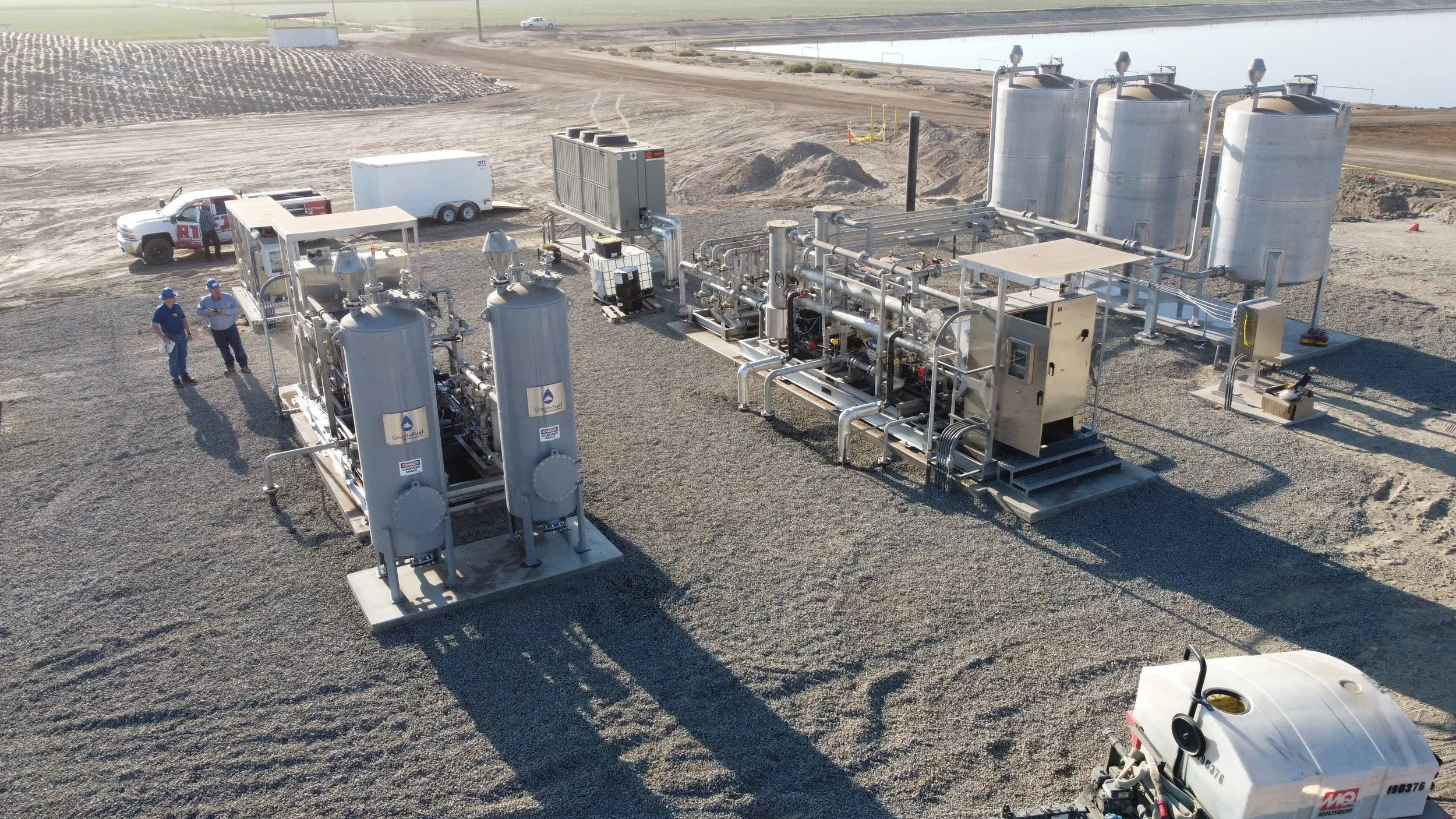California Department of Food and Agriculture Secretary Karen Ross speaking at the Bar 20 ribbon cutting ceremony.
Thanks to $3 million in funding from the Dairy Digester Research and Development Program (DDRDP), a California Bioenergy dairy digester and Bloom Energy fuel cell technology have been installed at the Bar 20 Dairy in Fresno County and are now capturing methane and generating renewable electricity without combustion. This innovative project was made possible through state incentive programs and private investors including the DDRDP administered by the California Department of Food and Agriculture, and the Self Generation Incentive Program, administered by the California Public Utilities Commission, and access to revenue generated by California’s Low Carbon Fuel Standard (LCFS) credit.
The project will remove 374,390 metric tons of carbon dioxide equivalent over a 10-year time period. This first-of-its-kind fuel cell technology will power BMW electric vehicles throughout California providing clean power to over 17,000 EVs per year, as well as an onsite microgrid for dairy operations. This new technology provides critical methane reductions to help the state meet its climate goals and provide local air quality benefits while furthering the State’s ambitious clean transportation goals.
Bar 20 Dairy—owned and operated by the Shehadey family since 1957—is proud to work with partners to bring another innovative, planet-smart farming project to fruition. "When I was young, my grandfather told me that we make milk for people’s children," said Steve Shehadey, owner of the dairy farm. "That has always stuck with us on the farm. We can’t offer anything but our best to children and the families who buy our milk. Today, that also means doing what we can to help clean the San Joaquin Valley air and to be part of a climate solution.”
Gas treatment equipment at Bar 20.
The Shehadeys consider this project to be one of several ongoing investments in climate-smart dairy farm practices. The dairy also continues to adopt new strategies to ensure the best possible animal health and comfort. In 2020, the dairy began implementing an electric feed mixing system that significantly reduced the use of diesel for daily activities, to improve air quality. Barns are lighted with 100 percent LED bulbs, and electricity needs are offset by a two-megawatt, on-site solar array. By supplying milk to the Producers Dairy Foods plant, the farm provides fresh milk daily that helps nourish local communities.
“Reducing dairy methane emissions is approximately 80 times more effective at cooling the planet in our lifetimes than reducing a similar amount of carbon dioxide,”[1] said N. Ross Buckenham, CEO of CalBio. “Although we need to do both, dairy methane reduction is one of the fastest and cheapest ways to limit the effects of global warming. This ultra-clean, methane-capturing, on-dairy power generation system scales from small to large dairies and produces renewable power, 24 hours a day, 7 days a week, while also supporting grid resiliency, improving local air quality, and reducing greenhouse gas emissions.”
Fuel cell array at Bar 20.
[1] Methane has a 25-year global warming potential value of 80, and a 100-year global warming potential of 25. This means that methane is 80 times more powerful than carbon dioxide in warming the atmosphere over a 25-year period and 25 times more powerful than carbon dioxide over a 100-year period. The global warming potential values depend on how the gas concentration decays over time in the atmosphere. Methane is a potent greenhouse gas and has the greatest impact over a shorter time period after it is emitted to the atmosphere compared to other more longer-lived gases.



